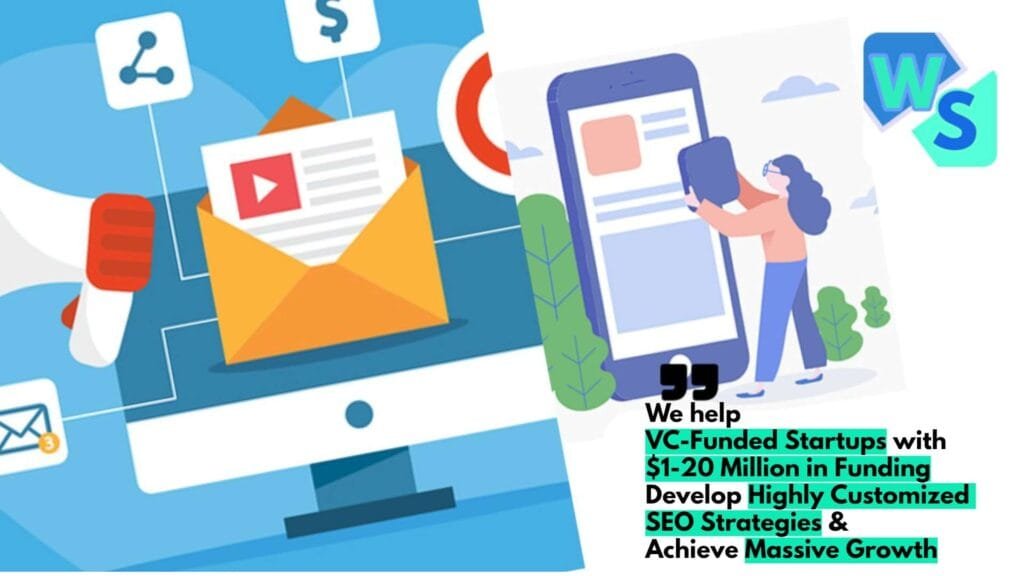Personalized Marketing Campaigns
Customer Engagement and Loyalty
Personalized marketing campaigns are crucial for fostering customer engagement and loyalty. Over 70% of consumers indicate that one-to-one personalization is their ideal expectation for website interactions. This level of customization creates a more relevant shopping experience, allowing customers to feel valued and understood. A prime example is Amazon, which uses highly tailored product recommendations based on individual browsing and purchasing history. This strategy not only enhances engagement but also significantly boosts loyalty among customers.
The table below highlights the key benefits of personalized marketing regarding customer engagement and loyalty.
| Benefit | Description |
|---|---|
| Enhanced Experience | Personalized interactions create a more engaging experience. |
| Increased Repeat Purchases | Tailored recommendations encourage customers to make repeated purchases. |
| Strengthened Brand Loyalty | Customers develop a deeper connection with brands that understand their preferences. |
| Improved Word-of-Mouth Referrals | Satisfied customers are more likely to recommend the brand to others. |
Benefits of Personalized Marketing
The advantages of personalized marketing extend beyond customer engagement. Tailored marketing approaches can lead to substantial increases in customer lifetime value and overall revenue growth. By encouraging repeat purchases, businesses cultivate long-term loyalty among their customer base.
Some notable benefits of personalized marketing include:
- Increased Customer Loyalty: Personalized experiences solidify a positive connection between the customer and the brand.
- Improved Customer Satisfaction: When marketing aligns closely with customer needs and preferences, satisfaction levels rise.
- Higher Conversion Rates: Tailored content results in a higher likelihood of conversions, as customers are presented with relevant offers.
- Greater Customer Lifetime Value: Loyal customers tend to spend more and remain with the brand longer, significantly boosting lifetime value.
- Competitive Advantage: Personalization can differentiate your brand in a crowded marketplace, making it stand out among competitors (Abmatic AI).
By embracing personalized marketing strategies, you position your business not only to attract new customers but also to retain existing ones, ultimately driving sustained growth. For insights into successful personalized marketing campaigns, refer to our article on marketing campaigns examples.
Data Analytics in Digital Marketing
In today’s competitive landscape, integrating data analytics into your digital marketing strategies is paramount. Understanding how data analytics contributes to your marketing efforts allows you to leverage insights that enhance personalized marketing campaigns benefits for your business.
Role of Data Analytics
Data analytics plays a crucial role in modern marketing by enabling businesses to create personalized experiences for their customers. In fact, 94% of businesses view data and analytics as essential for digital transformation and growth as of 2020 (William & Mary Online). By utilizing data analytics, marketers can derive deep insights about customer preferences, behaviors, and trends, allowing for improved targeting in marketing campaigns.
Implementing data analytics allows you to monitor campaign performance in real-time, leading to the fine-tuning of strategies and the overall optimization of campaigns. This process maximizes efficiency and enhances return on investment (ROI). The following table illustrates the benefits of using data analytics in your marketing campaigns:
| Benefit | Description |
|---|---|
| Increased Customer Value | Personalization leads to improved customer interactions and satisfaction. |
| Real-time Monitoring | Enables adjustments to be made promptly for optimal campaign performance. |
| Deeper Customer Insights | Understanding customer profiles allows for more targeted marketing materials. |
| Cost Optimization | Identifying inefficiencies leads to reduced expenditures on ineffective strategies. |
Utilizing Customer Data
To harness the power of data analytics effectively, it is essential to collect and analyze customer data intelligently. This data typically includes customer profiles, purchase histories, and browsing behaviors. Ninety percent of professional marketers attribute greater business profits to personalized marketing efforts, emphasizing the necessity of tailored material.
Utilizing these data insights allows for:
- Enhanced Customer Engagement: By understanding your audience’s preferences, you can create more relevant and engaging marketing messages.
- Targeted Marketing Strategies: Personalization leads to improved targeting, which ultimately results in higher conversion rates.
- Adaptation to Market Changes: Data analytics permits you to swiftly identify emerging trends and respond to market changes effectively, giving you a competitive edge over those relying on traditional methods (TBS Education).
- Cost Efficiency: Analyzing data helps identify areas of market inefficiency, allowing for better budgeting and resource allocation.
Incorporating data analytics into your digital marketing initiatives not only enhances your ability to connect with customers but also drives lasting growth for your business. For further exploration of effective digital marketing strategies, consider looking at digital marketing campaign strategies and marketing campaign performance metrics.
Strategies for Effective Campaigns
Implementing effective strategies is crucial for the success of your personalized marketing campaigns. Two key components are audience segmentation and tailored content creation.
Audience Segmentation
Audience segmentation involves dividing your target market into specific groups based on shared characteristics such as demographics, past purchases, and browsing patterns. This approach allows you to develop customized campaigns tailored to the needs and preferences of each segment. By ensuring that the messages sent are relevant, you can enhance customer engagement and improve loyalty.
| Segmentation Criteria | Description |
|---|---|
| Demographics | Age, gender, income, education, etc. |
| Psychographics | Interests, values, lifestyle, etc. |
| Behavioral Data | Purchase history, website interactions, etc. |
| Geographic Data | Location-based preferences and needs |
Segmenting your audience enables you to tailor your campaigns effectively, resulting in better engagement and higher ROI. This approach also allows you to adjust your marketing strategies based on the performance and results from specific segments (LinkedIn).
Tailored Content Creation
Creating tailored content is a fundamental strategy in personalized marketing. Personalized marketing aims to deliver more relevant messages, product recommendations, and services to enhance the customer experience (Emarsys). Research indicates that personalized emails can yield a six times higher transaction rate, showcasing the importance of this approach.
| Content Type | Benefit |
|---|---|
| Customized Emails | Higher engagement and conversion rates |
| Targeted Ads | Increased relevance leading to better performance |
| Personalized Recommendations | Enhanced customer satisfaction and loyalty |
Utilizing data analytics and machine learning can help you identify target audiences that closely match campaign criteria. This ensures that your messaging is tailored to the right individuals, thereby optimizing the effectiveness of your marketing spend (LinkedIn).
For more examples of how campaigns can be tailored, refer to our article on marketing campaigns examples and explore creative ideas in creative marketing campaign ideas. Tailored content experiences not only meet consumer demands but also enhance engagement, leading to long-term benefits for your business.
Implementing Personalization
Creating effective personalized marketing campaigns is essential in today’s competitive landscape. Implementing key strategies such as targeted advertising and marketing automation can significantly enhance your campaign’s performance and cater to your audience’s specific needs.
Targeted Advertising
Targeted advertising involves utilizing customer data to deliver personalized messages to specific segments of your audience. This type of advertising has shown remarkable benefits, with studies indicating that personalized campaigns can increase conversion rates by up to 30%. By focusing on particular customer segments and designing tailored content, you can boost conversion rates and foster a stronger connection with your customers.
| Targeting Strategy | Description | Potential Benefit |
|---|---|---|
| Demographic Targeting | Targeting based on age, gender, income, etc. | Increases relevance of campaigns |
| Behavioral Targeting | Targeting based on user behavior and past interactions | Improves engagement and conversions |
| Geolocation Targeting | Targeting based on location data | Enhances local marketing effectiveness |
| Contextual Targeting | Delivering ads based on the context of what customers are viewing | Improves ad relevance and response |
Utilizing artificial intelligence and machine learning can further refine your targeted advertising efforts. These technologies analyze customer preferences and behaviors, enabling you to create even more precise campaigns.
Marketing Automation
Marketing automation plays a vital role in the implementation of personalized marketing campaigns. Automated systems allow you to deliver customized messages at optimal times through various channels, including emails, display ads, and promotions. This approach enables you to engage potential customers with messaging that resonates with them, prompting them to take action at the right moment (OSMOS).
Key benefits of utilizing marketing automation include:
| Benefit | Description |
|---|---|
| Streamlined Processes | Automates repetitive tasks, allowing for more strategic time allocation |
| Enhanced Customer Tracking | Monitors customer interactions to optimize campaigns |
| Segmented Campaign Delivery | Sends tailored messaging based on customer data |
| Real-Time Data Analysis | Analyzes campaign performance for continuous improvement |
By integrating automation with your marketing efforts, you will be able to maintain a consistent level of personalization and responsiveness in your campaigns. Personalization is not a one-time effort; it involves ongoing adjustments and optimizations based on customer interactions. Implementing continuous testing and leveraging data-driven insights can significantly enhance the effectiveness of your personalized campaigns (Forbes).
For more information on crafting personalized campaigns, consider exploring marketing campaign performance metrics to track your results and refine your strategies.
Optimizing Personalization
To maximize the effectiveness of your marketing campaigns, focusing on continuous testing, optimization, and leveraging data-driven insights is essential. These practices ensure that your personalized marketing campaigns remain relevant and effective over time.
Continuous Testing and Optimization
Continuous testing involves regularly assessing the performance of your marketing strategies to identify areas for improvement. By employing A/B testing and other experimentation techniques, you can determine what resonates best with your audience. This approach allows you to refine your campaigns based on factual evidence rather than assumptions.
The following table illustrates some key metrics to monitor during testing:
| Metric | Importance |
|---|---|
| Conversion Rate | Measures the effectiveness of your campaign in encouraging action. |
| Click-Through Rate (CTR) | Indicates engagement levels in email or digital ads. |
| Bounce Rate | Shows the percentage of visitors who leave without engaging. |
| Customer Acquisition Cost (CAC) | Assesses the cost-effectiveness of your marketing efforts. |
Regular optimization can lead to enhanced engagement and increased customer satisfaction. As you adjust elements based on performance metrics, you improve the overall effectiveness of your campaigns.
Data-Driven Insights
Data analytics plays a critical role in informing your marketing decisions. By understanding customer behavior and preferences through data analysis, you can develop more personalized marketing strategies, which, in turn, lead to improved customer engagement and more effective campaigns.
Utilizing data analytics tools offers the following advantages:
- Real-Time Insights: Marketers can make swift decisions and capitalize on emerging trends (TBS Education).
- Competitive Edge: Quickly adapt to market changes and identify new opportunities while outperforming competitors using traditional methods (TBS Education).
- Cost Optimization: Identify inefficiencies and reduce unnecessary expenditures within your marketing strategies (TBS Education).
Embracing these data-driven insights enables you to continually improve the personalization of your marketing campaigns, making them more relevant to your target audience. For more on how to implement effective marketing strategies, refer to our section on digital marketing campaign strategies.
Developing Marketing Campaigns
In the realm of personalized marketing campaigns, effectively developing marketing strategies is essential for achieving your business objectives. This involves setting clear goals and selecting the right advertising channels.
Setting SMART Goals
To maximize the success of your marketing campaigns, it is advisable to set SMART goals. SMART stands for Specific, Measurable, Achievable, Relevant, and Timely. These criteria ensure that your goals are well-defined and realistic, increasing the chances of meeting your objectives.
| SMART Criteria | Description |
|---|---|
| Specific | Clearly define what you want to achieve. |
| Measurable | Establish how you will track progress and success. |
| Achievable | Ensure the goal is realistic and attainable. |
| Relevant | Align the goal with broader business objectives. |
| Timely | Set a clear timeframe for completion. |
By implementing SMART criteria in your marketing campaigns, you can create a focused approach that guides your efforts and enhances your ability to evaluate success (Adobe).
Advertising Channel Selection
Selecting the appropriate advertising channels is crucial for supporting and enhancing your marketing efforts. Various channels allow for greater flexibility and creativity in reaching your audience and achieving your campaign goals.
Some effective advertising channels include:
- Social Media (Facebook, Instagram, LinkedIn)
- Email Marketing
- Search Engine Marketing (Google Ads)
- Content Marketing (Blogs, Videos)
- Influencer Partnerships
Choosing the right channels depends on your target audience, budget, and specific campaign goals. Tailoring your channel selection can optimize performance and increase your campaigns’ effectiveness. Successful marketing campaigns, such as Nike’s “Just Do It” campaign, demonstrate how strategic channel selection can drive profitability and long-term benefits (Adobe).
For more insights on successful strategies and varied campaign examples, explore our articles on marketing campaigns examples and digital marketing campaign strategies.
Successful Campaign Examples
Examining successful marketing campaigns provides valuable insights into the effectiveness of personalized marketing strategies. Two notable examples are Nike’s “Just Do It” campaign and Adobe’s Campaign Software.
Nike’s “Just Do It” Campaign
Nike’s “Just Do It” campaign, introduced in 1988, stands as a landmark in marketing history. This campaign not only boosted Nike’s brand recognition but also showcased the long-term benefits of effective marketing strategies. It resonated with consumers’ emotions and ambitions, urging them to embrace an active lifestyle. Over the years, this campaign has driven significant profit and growth for Nike, reinforcing the importance of delivering a compelling message that aligns with customer aspirations (Adobe).
| Key Metrics | Results |
|---|---|
| Launch Year | 1988 |
| Estimated Increase in Sales | Over 1,000% |
| Brand Awareness | 90% of consumers recognized the slogan |
This campaign exemplifies how a well-executed marketing strategy can create a lasting impact. For further insights into various successful marketing initiatives, refer to our article on marketing campaigns examples.
Adobe Campaign Software
Adobe’s Campaign Software represents a strategic tool that empowers businesses to execute and manage personalized marketing campaigns effectively. By leveraging data-driven approaches, Adobe facilitates tailored communication with consumers, enhancing engagement and conversion rates. This software is integral for organizations aiming to optimize their marketing efforts by utilizing analytics to create targeted campaigns.
| Feature | Benefit |
|---|---|
| Data Management | Centralizes customer data for actionable insights |
| Automation Tools | Streamlines campaign execution for efficiency |
| Multichannel Support | Ensures consistent messaging across platforms |
The benefits of such personalized marketing campaigns include improved customer loyalty, enhanced engagement, and increased profitability. For more details on how to implement your own personalized strategies effectively, explore our content on digital marketing campaign strategies.
In both examples, personalized marketing campaigns demonstrate their potential to drive engagement and deliver significant returns on investment. By understanding these successful initiatives, you can adapt methods that resonate with your target audience, ensuring your marketing efforts produce lasting results.
Importance of Marketing Campaigns
Marketing campaigns play a critical role in determining the success of your business. By understanding their impact on profitability and the long-term benefits they offer, you can better appreciate the value of investing in well-crafted strategies.
Impact on Profitability
The influence of personalized marketing campaigns on profitability is significant. According to a study, 90% of leading marketers reported that marketing personalization considerably contributed to their profitability (Mediatool). Effective campaigns create targeted experiences for customers, leading to increased engagement and conversion rates.
| Marketing Strategy | Impact on Profitability |
|---|---|
| Personalized Content | Increases conversion rates up to 30% |
| Well-Designed Promotions | Attracts attention and drives traffic |
| Customer Segmentation | Improves engagement and retention |
Data analytics further enhance profitability by facilitating personalized customer experiences. In 2020, 94% of businesses recognized the importance of data and analytics for digital transformation and growth. Leveraging insights from data not only helps refine marketing strategies but also positions businesses to outperform competitors still relying on conventional methods (TBS Education).
Long-Term Benefits
Investing in effective marketing campaigns yields numerous long-term advantages. These include:
Customer Loyalty: Consistent and personalized interactions build trust and loyalty among your customer base.
Brand Recognition: Effective campaigns enhance your brand’s presence in the marketplace, making it memorable for consumers.
Adaptability: Utilizing data-driven insights allows your campaigns to evolve with market trends and consumer preferences, ensuring long-term relevance.
Sustainable Growth: By continually engaging customers through personalized experiences, businesses can foster sustainable revenue streams.
Informed Decisions: Data-driven marketing enables you to analyze customer behaviors and preferences, guiding future campaign strategies.
With personalized marketing campaigns benefits becoming clear, it is essential to focus on refining and optimizing your marketing strategies. For more examples of successful initiatives, explore our marketing campaigns examples and strategies for creating impactful campaigns.




















